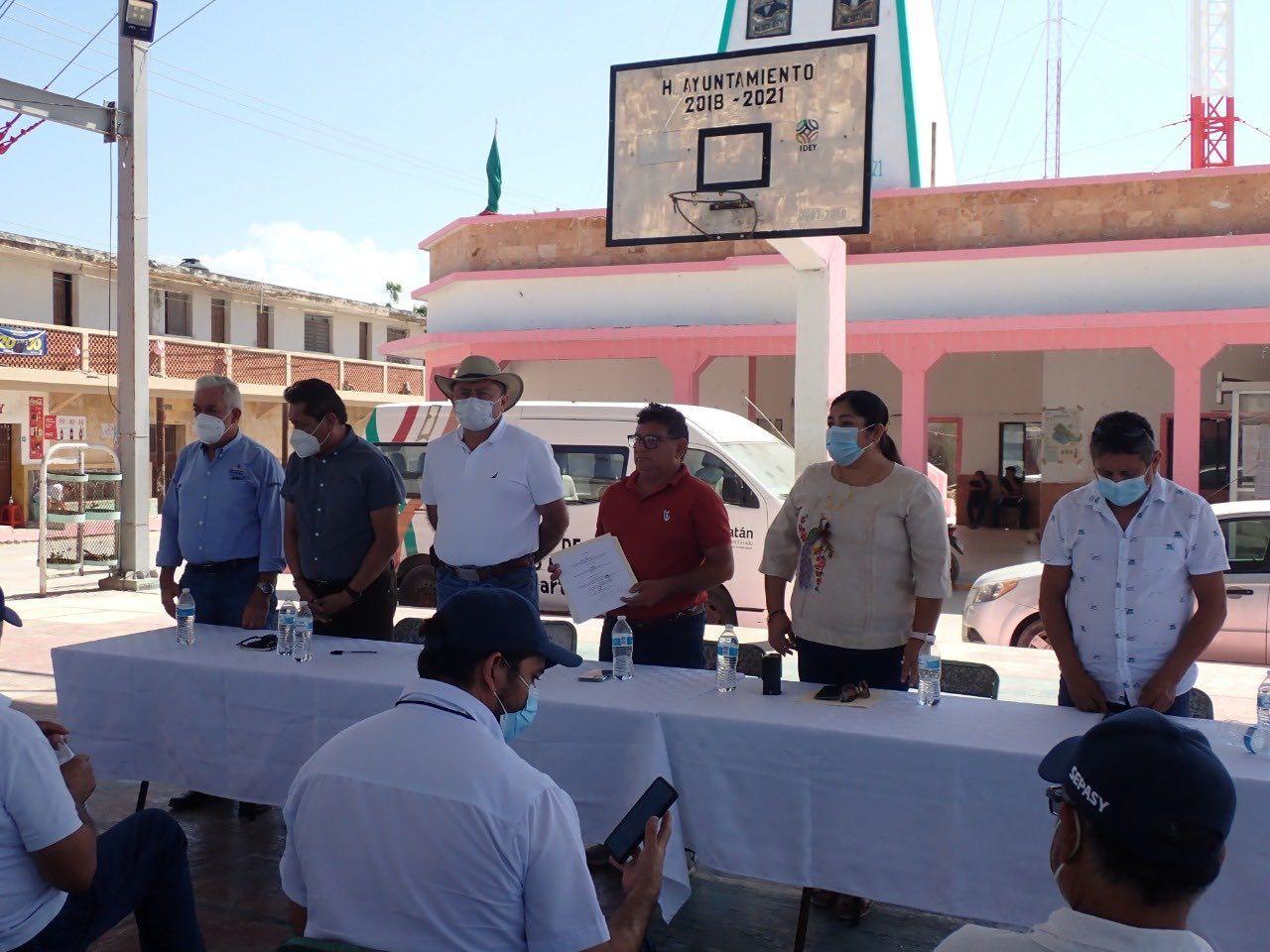The next four months will be the first test for the newly created Community Inspection and Surveillance Committee for Eastern Yucatán, made up of producers from San Felipe, Rio Lagartos, Las Coloradas and El Cuyo.
In that time, it is expected to achieve results that reduce the poaching that plagues the area and guarantee better production of the season.
“These are the months in which we have several species closed: octopus, grouper and, specifically, lobster, which is the stronghold of communities in the east of the state. In those four months, the weather conditions are suitable for illegal fishing, clear waters, there are no winds, in short, so we believe that this is the first test of monitoring the resource well,” warned José Luis Carrillo, president of the Mexican Confederation of Fisheries and Aquaculture Cooperatives (Conmecoop).
The president of Conmecoop, José Luis Carrillo, has made it clear that he is not trying to replace the work of the authorities. Initially, the committee will have two patrols. One of 25 feet and 115 horsepower; and another of 27 feet with a 250 horsepower engine.
These vessels correspond to contributions from the National Commission for Protected Natural Areas (Conanp). Previously in a statement, Cristóbal Cáceres, director of the Rio Lagartos Biosphere Reserve, explained that a marine patrol corresponds to the Alacranes Reef National Park and that another one would be added to the Reserve.
In addition, it is envisaged that the authorities of the Government of Yucatán will support the initiative with a third patrol. “Regardless, we have the support boats that are going to be the fishermen's boats and boats,” Carrillo said.
The initiative arises from the lack of personnel and budget of the National Aquaculture and Fisheries Commission (Conapesca), the bet will put a shoulder on the shoulders of the authorities in terms of the use of gasoline, boats and personnel willing to collaborate to combat illegal, unreported and unregulated fishing (IUU fishing).
Carrillo warned of the existing risk that the mere fishery will collapse and fail to recover, in addition to the vulnerability of fish production, which must meet international market standards, where legality is a central aspect to avoid sanctions from other countries, which translate into an increase in poverty.
“If we don't establish and demand compliance with the legality of catches, with the regulations that exist within a fishery, we are at a very strong risk because we have a complicated international agenda, an agenda that requires us to meet certain environmental requirements, we have the case of the vaquita, the shrimp a few months ago, the huachinango in the Gulf of Mexico, in short, I think that part of the markets is important to comply with them because if the markets are closed, we must remember that 80% of domestic production goes out,” he explained Carrillo.
Community betting
The community committee in eastern Yucatán follows a form of organization already implemented in Baja California and Baja California Sur, and now the president of Conmecoop is pleased that this scheme can be replicated in different parts of Mexico.
“I think we have to replicate those models in order to collaborate with the authorities. We want to make an alliance between the committees that are already constituted to try to make this permeate other states,” said Carrillo.
“We want to do all that, we are really starting here in Yucatán, but we already have other strategic points where there are committees such as La Paz, such as the Fedecoop Centro (in Baja California Sur),” he added.
Semar lowers inspection and surveillance results
The announcement comes at a time when the current administration of President Andrés Manuel López Obrador has suggested the transfer of fisheries inspection and surveillance tasks to the Secretariat of the Navy (Semar).
Last year alone, Semar arrested nine people in flagrante delicto and 28 boats related to illegal fishing, a corresponding reduction of 78% and 15.5%.
A bill introduced by members of the National Regeneration Movement (Morena) was presented in March 2020 for Semar to take up the operational fight against illegal fishing, without legislative advances.
For its part, the transfer of responsibilities has been sought by Conapesca and was supported by the then incumbent, Raúl Elenes Angulo, who told the newspaper La Jornada in July of last year that procedures were being carried out so that in 2022 it would be Semar who would carry out operations against illegal fishing, while Conapesca would keep the office of the fines.
However, this year started and Semar and Conapesca continue to carry out joint operations under a specific collaboration agreement signed on April 1, 2020.



Comentarios (0)